Ray Charles
Ray Charles

Ray Charles Robinson Sr. (September 23, 1930 – June 10, 2004) was an American singer, songwriter, and pianist, widely regarded as one of the most iconic and influential figures in the history of music. Known among friends and fellow musicians as "The Genius" or "Brother Ray," Charles made significant contributions to various music genres.
Charles faced blindness during childhood, likely due to glaucoma, but he overcame this challenge to become a pioneer in the soul music genre during the 1950s. His music blended elements of blues, jazz, rhythm and blues, and gospel, creating a distinctive sound. He recorded for Atlantic Records during this period.
In the 1960s, Ray Charles continued to break new ground by integrating country music, rhythm and blues, and pop music. His crossover success on ABC Records, particularly with his two Modern Sounds albums, played a significant role in this integration. Notably, Charles gained artistic control, becoming one of the first black musicians to receive such authority from a mainstream record company during his time with ABC.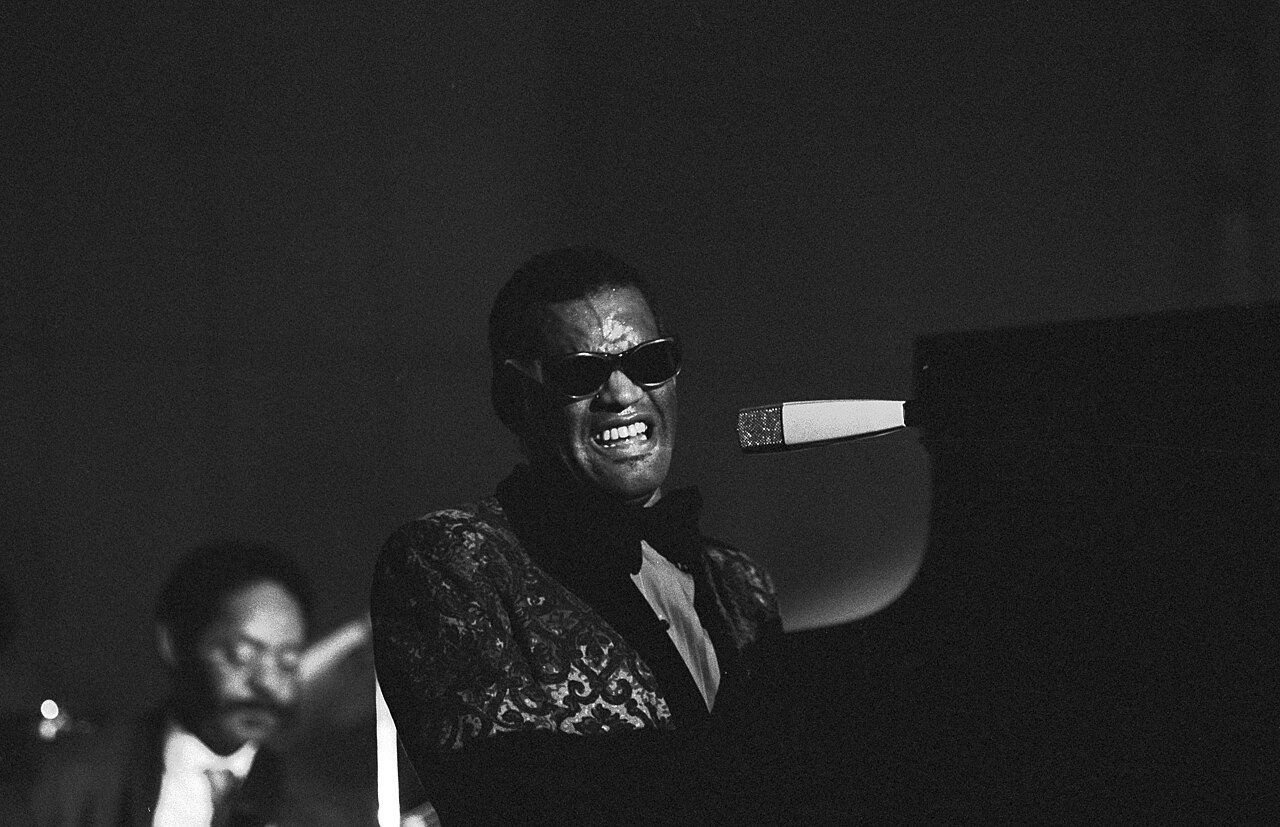
One of his notable hits, "Georgia on My Mind," released in 1960, became the first of three career No. 1 hits on the Billboard Hot 100. His 1962 album, "Modern Sounds in Country and Western Music," marked his first album to top the Billboard 200 chart. Ray Charles achieved success across various Billboard charts, with multiple singles reaching the Top 40, including 44 on the US R&B singles chart, 11 on the Hot 100 singles chart, and two on the Hot Country singles charts.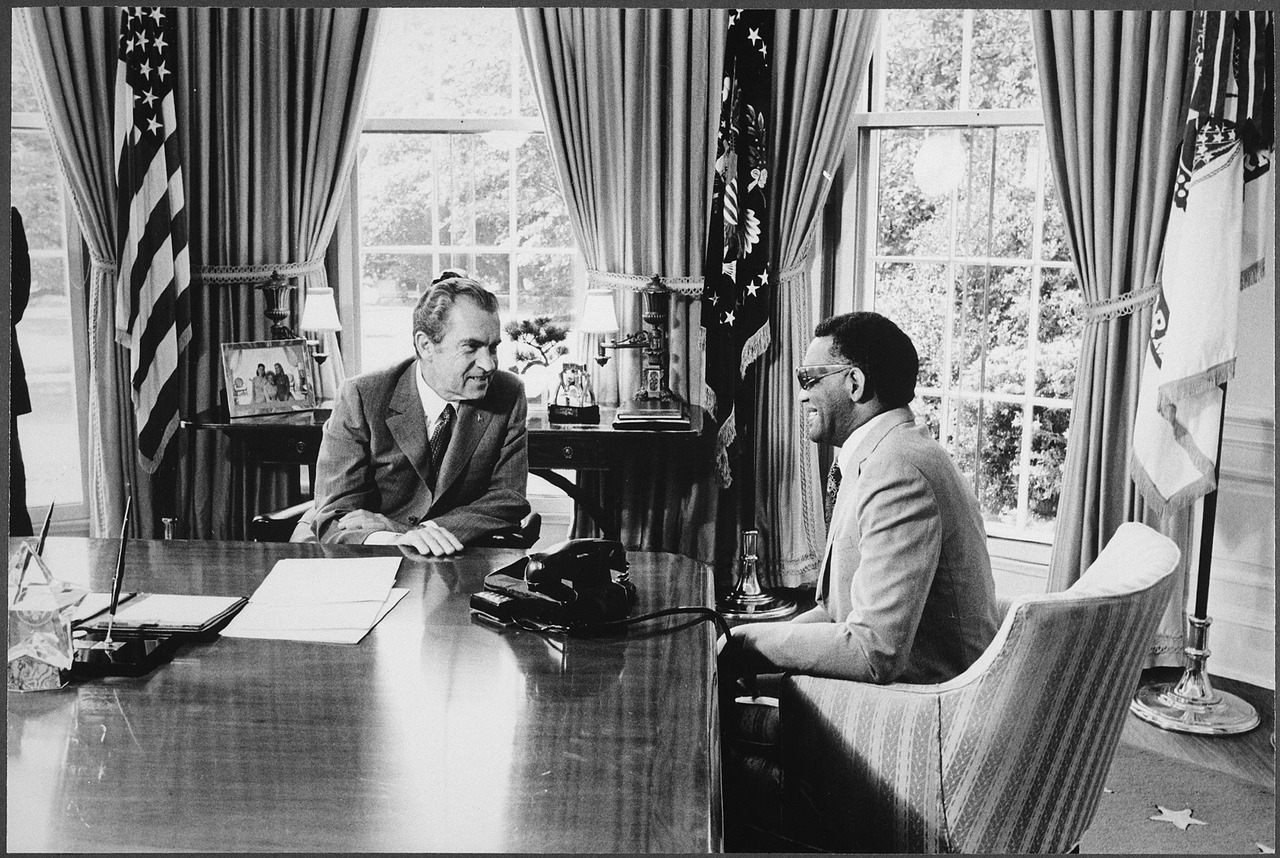
Ray Charles acknowledged Nat King Cole as a significant influence on his music, but he was also inspired by the styles of Louis Jordan and Charles Brown. Throughout his career, Charles developed a lasting friendship and occasional collaboration with Quincy Jones. Despite being hailed by peers and fans alike, he downplayed descriptions of him as the "only true genius in show business."
Frank Sinatra once declared Ray Charles as "the only true genius in show business," a sentiment that Charles modestly played down. Another artist, Billy Joel, went on record stating, "This may sound like sacrilege, but I think Ray Charles was more important than Elvis Presley."
In recognition of his immense contributions to music, Ray Charles received numerous honors and awards. These include the Kennedy Center Honors, the National Medal of Arts, and the Polar Music Prize. He was among the first inductees into the Rock and Roll Hall of Fame in 1986. Charles won a total of 18 Grammy Awards, with five awarded posthumously. He also received the Grammy Lifetime Achievement Award in 1987, and 10 of his recordings have been inducted into the Grammy Hall of Fame.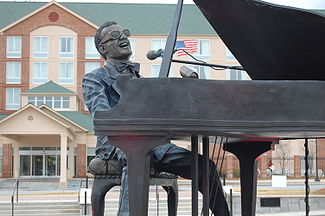
Ray Charles holds a prominent place in music history, securing the 10th spot on Rolling Stone's list of the 100 Greatest Artists of All Time and the 2nd spot on their list of the 100 Greatest Singers of All Time. In 2022, he was posthumously inducted into the Country Music Hall of Fame and honored on the Black Music & Entertainment Walk of Fame.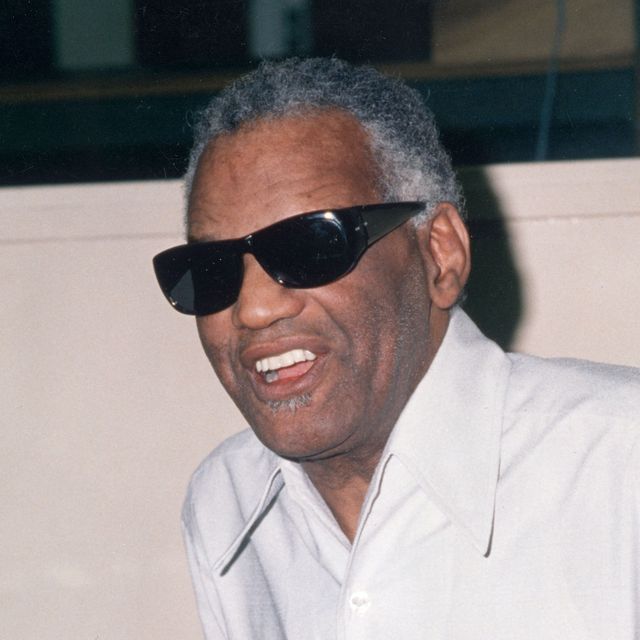
Ray Charles was born on September 23, 1930, in Albany, Georgia. His parents were Bailey Robinson, a laborer, and Aretha Robinson (née Williams), a laundress originally from Greenville, Florida.
During Aretha's childhood, her mother passed away, and her father was unable to care for her. Bailey Robinson, a man her father worked with, took her in. The Robinson family, including Bailey, his wife Mary Jane, and his mother, informally adopted Aretha, who then took on the Robinson surname. A scandal unfolded when Aretha became pregnant by Bailey, and she left Greenville in the summer of 1930 to be with family in Albany. After giving birth to her son, Ray Charles, she and the infant returned to Greenville. Aretha and Mary Jane, who had lost a son, shared in Charles's upbringing. The father abandoned the family, leaving Greenville and marrying another woman elsewhere. By Ray Charles's first birthday, he had a brother named George.
Despite the challenging circumstances, Ray Charles developed a deep and lasting devotion to his mother. He later recalled her perseverance, self-sufficiency, and pride as guiding lights in his life, even in the face of her poor health and adversity.
Ray Charles, in his early years, developed an interest in mechanical objects and observed his neighbors working on cars and farm machinery. His musical curiosity was sparked at the age of three when he visited Wylie Pitman's Red Wing Cafe. Pitman, playing boogie woogie on an old upright piano, caught Charles's attention, and Pitman subsequently taught him how to play the piano. Charles and his mother found a welcoming place at the Red Wing Cafe and even lived there during financial hardships. Pitman also helped care for Ray's younger brother George, alleviating some of the burden on their mother. Unfortunately, George accidentally drowned in his mother's laundry tub at the age of four.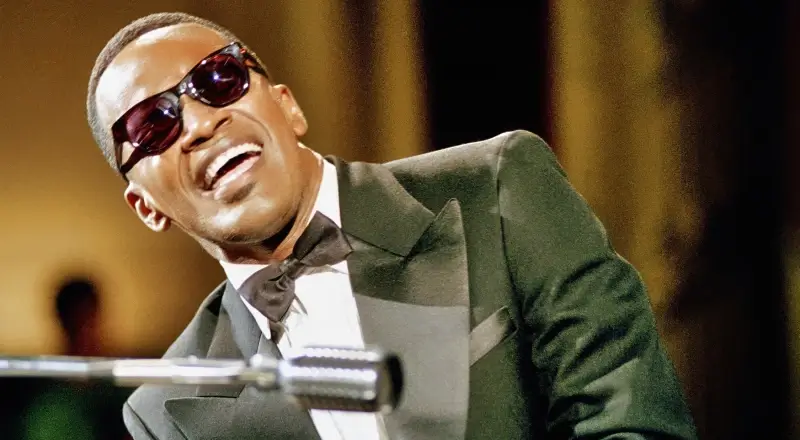
Ray Charles started losing his sight at the age of four or five, and he was blind by the age of seven, likely due to glaucoma. Following the death of George and facing financial difficulties, his mother, Aretha Robinson, used her community connections to find a school that would accept a blind African-American pupil. Despite his initial resistance, Charles attended the Florida School for the Deaf and the Blind in St. Augustine from 1937 to 1945.
At the school, Charles honed his musical talent and was taught to play classical piano music by composers like Bach, Mozart, and Beethoven. His teacher, Mrs. Lawrence, taught him to read braille music, a challenging process requiring him to learn the left hand movements by reading braille with the right hand and vice versa, then combining the two parts.
Tragedy struck again in 1945 when Charles's mother passed away when he was 14. Her death, following the earlier loss of his brother, had a profound impact on him. Charles chose not to return to school after his mother's funeral.
After leaving school, Ray Charles relocated to Jacksonville, where he lived with Charles Wayne Powell, a friend of his late mother. Charles played the piano for bands at the Ritz Theatre in LaVilla for over a year, earning $4 a night. He joined Local 632 of the American Federation of Musicians with the hope that it would help him secure more work. Charles utilized the union hall's piano for practice since he didn't have one at home, learning piano licks by emulating other players there.
While building a reputation as a talented musician in Jacksonville, Charles felt that the opportunities were not coming quickly enough for him to establish a strong identity. At the age of 16, he moved to Orlando, where he experienced borderline poverty and went without food for days. Finding work as a musician was challenging, and he struggled to secure regular gigs.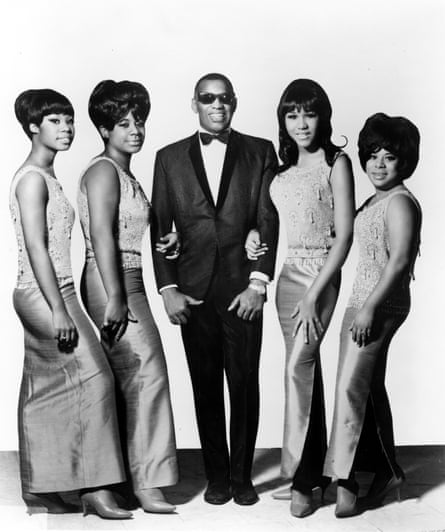
In 1947, Charles moved to Tampa, taking on two jobs, including one as a pianist for Charles Brantley's Honey Dippers. During this early phase of his career, Charles modeled himself on Nat King Cole. His first four recordings – "Wondering and Wondering," "Walking and Talking," "Why Did You Go?" and "I Found My Baby There" – were reportedly done in Tampa, although some discographies suggest they were recorded in Miami in 1951 or Los Angeles in 1952.
Ray Charles had always played piano for others, but he aspired to have his own band. In March 1948, he left Florida for Seattle, Washington, with the intention of establishing himself in a larger city. Charles considered Chicago and New York City too big and opted for Seattle after following his friend Gossie McKee, knowing that major radio hits often originated from northern cities. In Seattle, Charles met and befriended Quincy Jones, who was just 15 years old at the time, under the guidance of Robert Blackwell.
Forming The McSon Trio with McKee on guitar and Milton Garred on bass, Charles began playing the 1–5 A.M. shift at the Rocking Chair. Publicity photos of this trio are among the earliest known photographs of Ray Charles. In April 1949, the band recorded "Confession Blues," which became Charles's first national hit, reaching the second spot on the Billboard R&B chart. While still performing at the Rocking Chair, Charles also arranged songs for other artists, including Cole Porter's "Ghost of a Chance" and Dizzy Gillespie's "Emanon."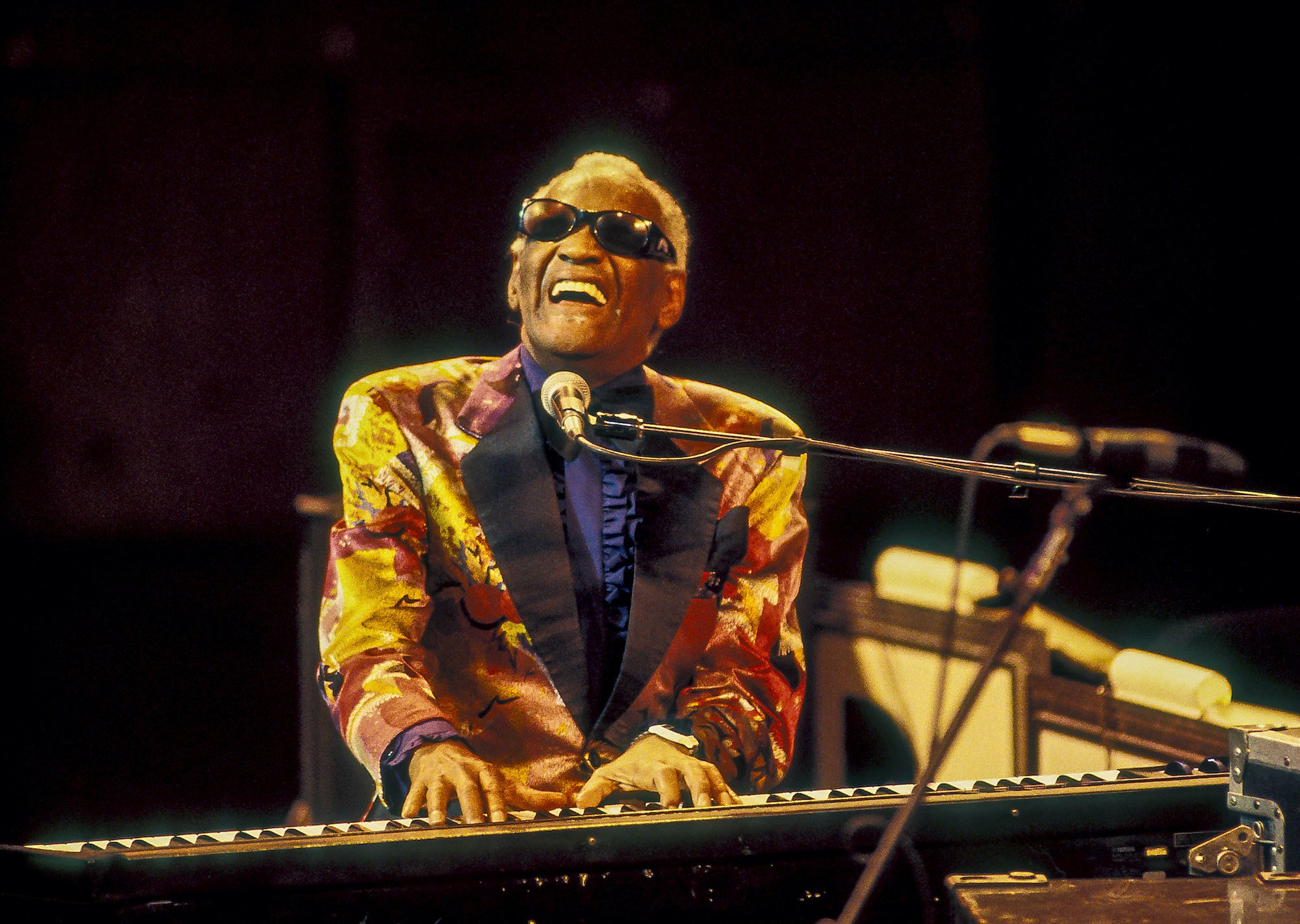
After the success of his initial singles, Charles moved to Los Angeles in 1950 and spent the next few years touring with blues musician Lowell Fulson as Fulson's musical director. During his time in Miami in 1950, Charles's performance at a hotel impressed Henry Stone, who recorded a Ray Charles Rockin' record that did not achieve widespread popularity. Stone later helped Jerry Wexler find Charles in St. Petersburg. Charles then signed with Swing Time Records, where he recorded two more R&B hits under the name Ray Charles: "Baby, Let Me Hold Your Hand" (1951) and "Kissa Me Baby" (1952). Swing Time folded the following year, and Charles was signed to Atlantic Records by Ahmet Ertegun. In addition to his work as a musician, Charles also served as a record producer, producing Guitar Slim's number 1 hit, "The Things That I Used to Do."
References
- Morrison, Van. "100 Greatest Artists of All Time. No. 10: Ray Charles". Rolling Stone. No. 946. Archived from the original on October 19, 2012. Retrieved June 13, 2010.^ Jump up to:
- a b c d "Ray Charles, American Legend, Dies at 73". NPR.org. June 11, 2004. Retrieved September 25, 2014.^ Jump up to:
- a b Unterberger, Richie. "Ray Charles". AllMusic. Retrieved December 20, 2019.^ Jump up to:
- a b Hoye, Jacob, ed. (2003). 100 Greatest Albums. Simon and Schuster. p. 210. ISBN 978-0-7434-4876-5.
- ^ "Show 15: The Soul Reformation". digital.library.unt.edu. Retrieved December 15, 2018.
- ^ Palmer, Robert (February 9, 1978). "Soul Survivor Ray Charles". Rolling Stone. No. 258. pp. 10–14. Archived from the original on March 1, 2010. Retrieved November 9, 2008.
- ^ Tyrangiel, Josh (November 13, 2006). "Review: Modern Sounds in Country and Western Music". Time. Archived from the original on February 18, 2007. Retrieved July 21, 2009.^ Jump up to:
- a b c d e "Ray Charles". Recording Academy Grammy Awards. November 23, 2020.


































